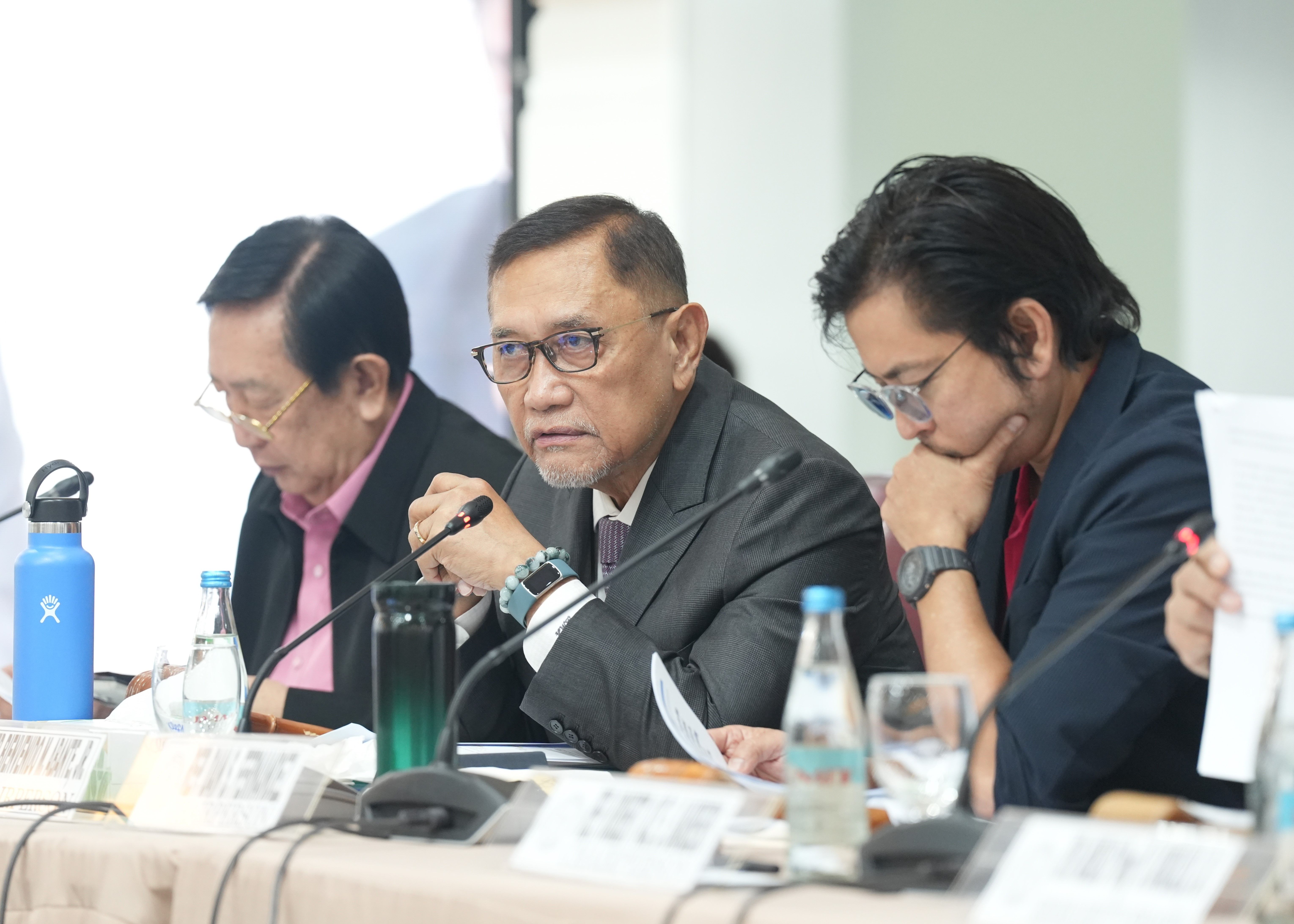Congress allocated funding for Duterte's war on drugs, not EJKs—Abante
At A Glance
- While Congress may have supported former president Rodrigo Duterte's war on drugs by financing its campaign, Manila 6th district Rep. Bienvenido "Benny" Abante Jr. clarified that these funds were not intended for extrajudicial killings (EJKs).
 Manila 6th district Rep. Bienvenido "Benny" Abante Jr. (PPAB)
Manila 6th district Rep. Bienvenido "Benny" Abante Jr. (PPAB)
While Congress may have supported former president Rodrigo Duterte’s war on drugs by financing its campaign, Manila 6th district Rep. Bienvenido "Benny" Abante Jr. clarified that these funds were not intended for extrajudicial killings (EJKs).
"The objective of this campaign was to end the threat posed by illegal drugs, not to cut short the lives of innocent men, women, and children,” Abante said in a statement on Thursday, Oct. 24.
Abante, a co-chairperson of the House quad-committee (quad-comm), said none of the annual General Appropriations Act (GAA) passed during the Duterte administration was allocated for the “murder of innocent, poor Filipinos”.
“The bloody drug war implemented during the Duterte administration, as explained by one of our colleagues, did not solve the drug problem,” the lawmaker said.
“In fact, it worsened it, creating more harm than good by orphaning thousands of children who lost their parents, often the family breadwinners, on mere suspicion of involvement in drugs,” he explained.
Based on figures from the Philippine National Police (PNP), over 6,000 suspects died during the war on drugs. However, human rights organizations estimate that the figures could be as high as 30,000.
Abante lamented how Duterte’s anti-drug campaign, particularly the operations Oplan Tokhang and Oplan Double Barrel, has victimized families that are now even poorer five to ten years later.
“With no support from their slain breadwinners, these children and relatives struggle to get a proper education, and as a result end up as street children who often get involved in petty crimes due to their poverty,” he added.
The veteran lawmaker also highlighted that both Oplan Tokhang and Oplan Double Barrel failed to prosecute suspected big-time drug lords, such as Michael Yang.
Yang, a former economic adviser of Duterte, is linked to illegal Philippine Offshore Gaming Operators (POGOs) and its alleged criminal activities, including illegal drugs.
Abante pointed out that instead of solving the problem of illegal drugs in the country, the previous administration “exacerbated it”.
Critics were silenced
Abante, chairperson of the House Committee on Human Rights, recognized that some did not speak out earlier against Duterte’s war on drugs, over fear of the previous administration’s tactics against those who opposed the campaign.
“Media outlets were silenced, and those who opposed the drug war—such as lawyers, judges, and politicians—were implicated in illegal drugs,” noted Abante.
“Their names were unjustifiably included in publicized drug lists, and they were later murdered because of it––with no thorough police investigation following their deaths," he underscored.
The congressman said that some law enforcers, particularly from the PNP, “competed over who to kill regardless of whether the targets were legitimate or not, all for the lure of substantial monetary rewards".
“In simple terms, the Duterte government used taxpayers’ money, through intelligence funds, to kill thousands of Filipino drug suspects deprived of due process––including innocents," Abante stressed.
He recalled that Duterte was on record, encouraging the police to “commit abuses and murders, by saying ‘kill them, and I’ll take care of you”.
The quad-comm, which has been investigating the EJKs that transpired during the previous administration, has heard several testimonies from key witnesses linking police officers to the killings of government officials.
Retired police colonel Royina Garma, who is reportedly close to Duterte, earlier revealed the existence of a “reward system” in exchange for killing drug suspects.
Garma said the reward ranges from P20,000 to as high as P1,000,000.
It was alleged that the funding for these rewards came from illegal numbers games, POGOs, as well as intelligence funds from the PNP and the Office of the President (OP).
READ MORE:
'Kumanta na': Emotional Garma says cash reward-driven drug war was Duterte's idea